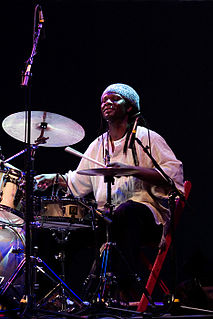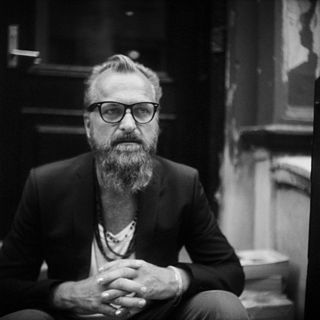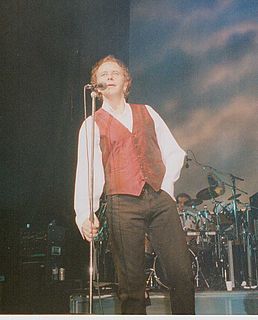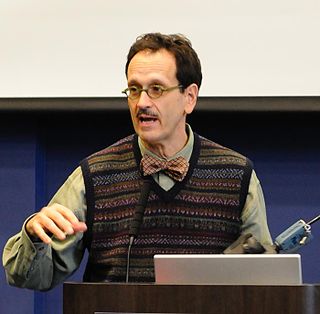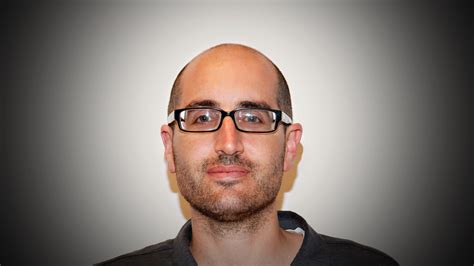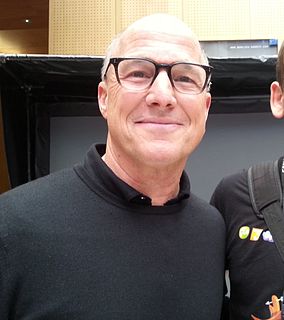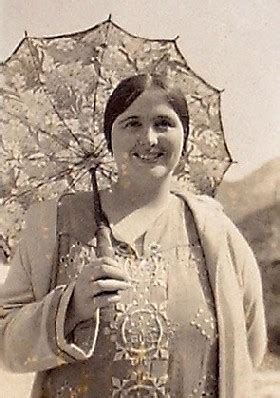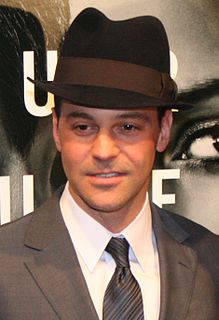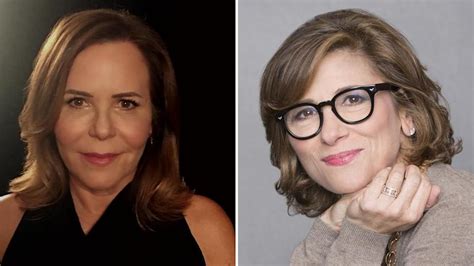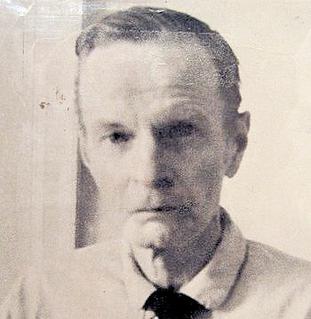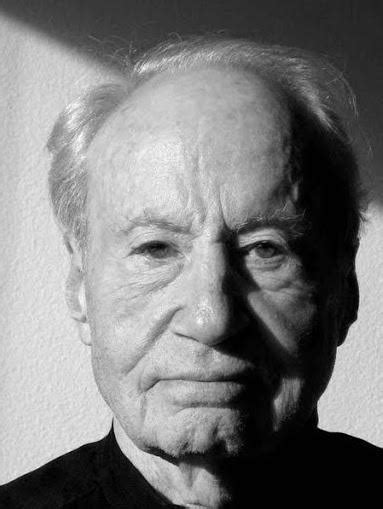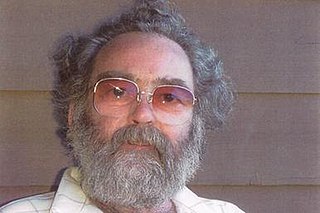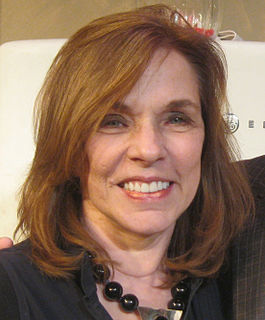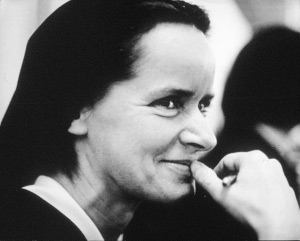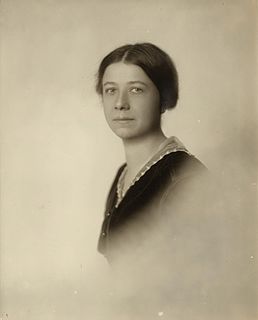Top 1200 Creative Writers Quotes & Sayings - Page 19
Explore popular Creative Writers quotes.
Last updated on November 24, 2024.
People in the media and press often say they've never been good at math. It might be that people that consider themselves creative didn't consider themselves good at math or didn't find math interesting at those early stages. And those creative people are disproportionately represented in those influential roles.
It is generally supposed that where there is no QUOTATION, there will be found most originality; and as people like to lay out their money according to their notions, our writers usually furnish their pages rapidly with the productions of their own soil: they run up a quickset hedge, or plant a poplar, and get trees and hedges of this fashion much faster than the former landlords procured their timber. The greater part of our writers, in consequence, have become so original, that no one cares to imitate them; and those who never quote, in return are never quoted!
Our species is the only creative species, and it has only one creative instrument, the individual mind and spirit of man. Nothing was ever created by two men. There are no good collaborations, whether in music, in art, in poetry, in mathematics, in philosophy. Once the miracle of creation has taken place, the group can build and extend it, but the group never invents anything. The preciousness lies in the lonely mind of a man.
When I started doing improvise music in Europe, in the beginning I thought the way that Europeans were interpreting the reconstruction of deconstruction of this thing that we call jazz - of course it's different than what Americans do, because Europeans have a different history, a different sensibility and so forth - the nature of the creative process itself it's the same; but what comes from that creative process is different, because you have a different history, you have a different society, different language.
So if you are seeking something else in the name of creativity, then drop the idea of being creative. At least consciously, deliberately, do whatsoever you want to do. Never hide behind masks. If you really want to be creative, then there is no question of money, success, prestige, respectability. Then you enjoy your activity; then each act has an intrinsic value. You dance because you like dancing; you dance because you delight in it.
There's an old saying - you'll never hit a target you can't see. Defining a Creative Challenge is an important step in focusing your creativity toward a specific problem or opportunity. A Creative Challenge can be something big such as a revolutionary new product or a cure for disease. However, it can also be much smaller such as a new package design or an efficiency gain in a manufacturing process. It starts with clearly defining the challenge and desired outcome.
Narco fiction novels have a reputation, at least here in Mexico among some of the writers I know, of being somewhat rushed productions, usually written in one way or another like crime thrillers, with something cheesily exploitative about them. It feels exploitive - taking this horrible and ongoing tragedy and trying to turn it into something entertaining. Or trying to turn it into something that might earn the writer a reputation of the sort that many writers believe they aspire to. Or earn them money.
The impresario function is about intervening with the company's more administrative management structure. It is about trying to establish a sense of boundaries and budgets and milestones and so forth on a project that does not necessarily lend itself to milestones. It is about translating between the intimate interior environment of the creative work team and the company's need to make money. And finally, it is about positioning the fruits of the creative process in the marketplace and selling them.
I want you to go back to Tucson and bring me the bottle of tequila I keep in my liquor cabinet. And don't scare Tim." Volusian remained motionless in that way of his. "My mistress grows increasingly creative in her ways to torment me." "I thought you'd appreciate it." "Only in so much as it inspires me to equally creative means to rip you apart when I am able to break free of these bonds and finally destroy you." "You see? There's a silver lining to everything. Now hurry up.
I see BLK DNM more as a creative project than a traditional fashion brand. The world doesn’t really need more Fashion Houses. I want to create something different – to be able to collaborate with great creative minds and thereby stretch the brand in different directions. I also believe that a brand should offer deeper content in this era. After all, the only reason to do all of this is to create energy and to inspire people.
I do seem to work in a lot of different mediums, which means it keeps things fresh and sparks interest in me. Fame and fortune is fairly irrelevant to me. It's nice because it gives creative freedom. But just wanting to be famous is ridiculous because it's so vacuous. So, I get offered lots of different things and if they spark my interest, I'll try and do them because they form part of a wider creative circle.
Incidentally, I am intrigued by how many European and Latin American writers expressed their political views in the columns they routinely wrote or write in the popular press, like Saramago, Vargas Llosa, and Eco. This strikes me as one way of avoiding opinionated fiction, and allowing your imagination a broader latitude. Similarly, fiction writers from places like India and Pakistan are commonly expected to provide primers to their country's histories and present-day conflicts. But we haven't had that tradition in Anglo-America.
I had a couple albums out that sold well for who I was at the time and the type of music I played. People started recognizing my name and face and it helped sell bigger venues. I had a bigger spotlight and I had to live up to it but I thrived under that challenge. It expedited the creative process. If I was on stage in front of 300 people instead of 30, I had to work harder at my performances because I had a greater responsibility. It was very exciting, but creative too.
I really need to know where I'm going with fiction to write it in a way that at least I'm happy with. And I really think that a lot of fiction books end badly because terrific writers said, "I'll just figure it out" and plunge in, but have created so many problems that they are kind of impossible to solve. I mean, I'm talking really good writers do this and you can tell when they got to the end they either had to do something preposterous or they just don't really resolve things. So for fiction I spend a lot more time outlining and for humor I really don't do much of it.
Jorge Luis Borges was lamenting a variety of Orientalism that was used to measure the alleged authenticity of Argentine and Latin American writers in the midcentury. The Argentine literary tradition was believed by many, including many Argentines, to be concerned with a national imaginary in which the gauchos and the pampas and the tango were fundamental tropes. Borges, in part to legitimize his own Europhilia, correctly pointed out that expecting writers to engage with these romantic nationalist tropes was arbitrary and limiting, a genre that was demonstrative of its own artificiality.
The weirdest thing to me is that magazines would never do this for their writers. They would never hire a writer who writes for another magazine; they want to have their own stable of writers. Newsweek would never hire a TIME writer, and TIME would never hire a Newsweek writer - but they would both hire the same photographer to shoot a cover for them.
Build pockets of stillness into your life. Meditate. Go for walks. Ride your bike going nowhere in particular. There is a creative purpose to daydreaming, even to boredom. The best ideas come to us when we stop actively trying to coax the muse into manifesting and let the fragments of experience float around our unconscious mind in order to click into new combinations. Without this essential stage of unconscious processing, the entire flow of the creative process is broken.
At best, the relationship between drama critic and playwright is a pretty twiggy affair. When I'm asked whom I write for, after the obligatory, I write only for myself, I realize that I have an imaginary circle of peers - writers and respected or savvy theatre folk, some dramatic writers and some not, some living, some long gone. . . . Often a writer is aware as he works that a certain critic is going to hate this one. . . . You don't let what a critic might say worry you or alter your work; it might even add a spark to the gleeful process of creation.
It's not a matter of whether the reviews of your books are good or bad, it's about being taken seriously, both as a woman writer and as a writer of color. Also, it worries me when people point to a couple of women writers or writers of color who get some attention - and I am sometimes pulled into that category - to prove that others are getting a fair shot. It's like those people who keep saying that racism no longer exists in this country because Barack Obama was a President of the United States.
Writers are egotists. All artists are. They can’t be altruists and get their work done. And writers love to whine about the Solitude of the Author’s Life, and lock themselves into cork-lined rooms or droop around in bars in order to whine better. But although most writing is done in solitude, I believe that it is done, like all the arts, for an audience. That is to say, with an audience. All the arts are performance arts, only some of them are sneakier about it than others.
I think readers appreciate those of us who stay in the trenches and fight the good fight even when times get tough. I know that I, personally, lost respect for writers who, when there was a downturn in the market, started shouting from the rooftops that they wrote thrillers and suspense novels rather than horror. As far as I'm concerned, those wussboys should sever all ties with the horror community if that's the way they feel and get out of the way so real horror writers can do their work.
When writers are self-conscious about themselves as writers they often keep a great distance from their characters, sounding as if they were writing encyclopedia entries instead of stories. Their hesitancy about physical and psychological intimacy can be a barrier to vital fiction. Conversely, a narration that makes readers hear the characters' heavy breathing and smell their emotional anguish diminishes distance. Readers feel so close to the characters that, for those magical moments, they become those characters.
Creativity builds upon the public domain. The battle that we're fighting now is about whether the public domain will continue to be fed by creative works after their copyright expires. That has been our tradition but that tradition has been perverted in the last generation. We're trying to use the Constitution to reestablish what has always been taken for granted--that the public domain would grow each year with new creative work.
One of my central philosophies is to be creatively driven so I have to be extraordinarily creative in the way I get things done and I have to be really flexible. Striving for the best creativity can be a really moving target if you're trying to budget anything because if you come up with a better idea for something and it's going to make the movie stronger then you have to do it. And that's what I do. The difficulty is that you have to use more judgement as a producer then you might in other places. I have to make unbelievably great creative decisions.
Writers in the nineteenth century - people like George Eliot and Flaubert - were accustomed to addressing particular communities with which they shared not only linguistic meanings but also an experience and history. Those communities have progressively split in the twentieth century, and grown more heterogeneous, and writers emerging from minority communities have found themselves addressing audiences closer to their experience and history - a phenomenon derided by conservative white men as identity politics and multiculturalism in the arts.
What writers of fantasy, science fiction, and much historical fiction do for a living is different from what writers of so-called literary or other kinds of fiction do. The name of the game in F/SF/HF is creating fictional worlds and then telling particular stories set in those worlds. If you're doing it right, then the reader, coming to the end of the story, will say, "Hey, wait a minute, there are so many other stories that could be told in this universe!" And that's how we get the sprawling, coherent fictional universes that fandom is all about.
Wow, I wish I could have done something like that.” That’s the thing, with other filmmakers, if I like them I just feel admiration. And yes, I usually say, “I wish I could have been part of that creative process,” because the films I admire like that are so specific that I know the creative process is also so specific, it’s nothing you could just imitate.
There is rarely a creative man who does not have to pay a high price for the divine spark of his greatest gifts... the human element is frequently bled for the benefit of the creative element and to such an extent that it even brings out the bad qualities, as for instance, ruthless, naive egoism (so-called "auto-eroticism"), vanity, all kinds of vices-and all this in order to bring to the human I at least some life-strength, since otherwise it would perish of sheer inanition.
People ask me all the time what it's like to work with my mother. I feel completely blessed because, first of all, this has given us an opportunity to enrich our relationship in ways we never could have imagined. Our time together is purely creative. It's unfettered by politics or the news of the day or aches and pains or family dramas or anything else. This time together is sort of golden and protected as being just creative time, which is heavenly.
The Lampoon was definitely quite formative. You know there's a crazy like kind of network of comedy writers from The Lampoon that are, that kind of you know like Seinfeld and The Simpsons and a lot of shows kind of had a lot of kind of Lampoon writers and so that was very formative. I mean, to me I got interested in comedy writing at an early like reading like Dave Barry.
I used to do miserably in English literature, which I thought was a sign of moral turpitude. As I look back on it, I think it was rather to my credit. The notion of actually putting writers' words into other words is quite ridiculous because why bother if writers mean what they mean, and if they don't, why read them? There is, I suppose, a case for studying literary works in depth, but I don't quite know what 'in depth' means unless you read a paragraph over and over again.
Confessionalism relates to writers of color. I think confessional poetry is in its way very Catholic, capital C. One of the formative ideas of Confessionalism, beyond psychoanalysis, is a very actual fall from grace. And, at least in America, people of color never occupy that position of grace the way that white people do. So I think that in some very actual ways the confessional mode, strictly speaking, is not possible for non-white writers.
The genuinely significant creation, whether an idea, or a work of art, or a scientific discovery, is most likely to be seen at first as erroneous, bad, or foolish. Later it may be seen as obvious, something self-evident to all. Only still later does it receive its final evaluation as a creative contribution. It seems clear no contemporary mortal can satisfactorily evaluate a creative product at the time it is formed, and this statement is increasingly true the greater the novelty of the creation.
Some writers find that they don't know their themes until they've finished the first draft (I am one). They then rewrite with an eye toward balancing on that tightrope: not too contrived, not too rambling; does what I'm saying about the world below me actually add up to anything? Other writers pay attention to these things as they write the first draft. Either way, an awareness of the macro and micro levels of theme can provide one more tool for thinking about what you should write, and how.
I think back on it now and even though Gwen and I were living through a tough time with the breakup, as creative partners, that took precedence in our lives. Even though we were going through this really emotional stuff, which obviously ended out coming out in the music, we managed to stay really close and be creative partners through all of that.
It's fun when the writers start writing jokes to you, but also it's fun when the writers will come to you and say 'Hey, listen, we're working on this story and we need to know if you speak any foreign languages.' And I said 'No, I don't. I speak a little Spanish, but I can learn a foreign language.' And they go 'Okay, do you think you can learn Portuguese?' And I go 'Yeah, whatever it takes. If it's funny, I'll do it.' So of course I start looking online and learning Portuguese, and as it turns out, I get the script and it's now Serbian.
Where those two energies [male and female energies] intersect, all creativity is possible. We already have divine creative energy within us. And what is the most powerful of these energies? The energy that patriarchy and misogyny constantly try to repress. The divine female sexual energy. The creative energy of the female. That is why I worship divine sexual female energy.
Throughout much of history, women writers have capitulated to male standards, and have paid too much heed to what Virginia Woolf calls "the angel in the house." She is that little ghost who sits on one's shoulder while one writes and whispers, "Be nice, don't say anything that will embarrass the family, don't say anything your man will disapprove of ..." [ellipsis in original] The "angel in the house" castrates one's creativity because it deprives one of essential honesty, and many women writers have yet to win the freedom to be honest with themselves.
And ultimately, it's good for all of us to have more original programming on the air. Business doesn't drive the creative. So, in identifying a project like Dovekeepers, looking at something like Extant and looking at Under the Dome, it was about falling in love with a piece of material, getting excited by the creative direction, hearing a vision, and getting excited about the potential for those projects and building the business model around it. And they're not all modeled the same way. Every one is different.
A lot of attention has been paid in Latin America to the new generation of nonfiction writers, authors like Julio Villanueva Chang, Diego Osorno, Cristóbal Peña, Gabriela Wiener, Leila Guerriero, Cristian Alarcón, among others. These are writers doing important, groundbreaking work. So the talent is there, as is the habit of radio listenership, and what we propose to do is unite the two. We want to have these immensely gifted journalists - men and women who've already revitalized the long-form narrative - we want them to tell their stories in sound.
The preliminaries were out of the way, the creative process was about to begin. The creative process, that mystic life force, that splurge out of which has come the Venus de Milo, the Mona Lisa, the Fantasie Impromptu, the Bayeux tapestries, Romeo and Juliet, the windows of Chartres Cathedral, Paradise Lost - and a pulp murder story by Dan Moody. The process is the same in all; if the results are a little uneven, that doesn't invalidate the basic similarity of origin.
...one of hallmarks of a creative person is the ability to tolerate ambiguity, dissonance, inconsistency, things out of place. But one of the rules of a well-run corporation is that surprise is to be minimized. Yet if this rule were applied to the creative process, nothing worth reading would get written, nothing worth seeing would get painted, nothing worth living with and using would ever get designed.
The essential in artistic creativity is victory over the burden of necessity. In art, man lives outside himself, outside his burdens, the burdens of life. Every creative artistic act is a partial transfiguration of life. In the artistic concept man breaks out through the heaviness of the world. In the creative-artistic attitude towards this world we catch a glimpse of another world.
There’s a writer for you,” he said. “Knows everything and at the same time he knows nothing.” [narrator]It was my first inkling that he was a writer. And while I like writers—because if you ask a writer anything you usually get an answer—still it belittled him in my eyes. Writers aren’t people exactly. Or, if they’re any good, they’re a whole lot of people trying so hard to be one person. It’s like actors, who try so pathetically not to look in mirrors. Who lean backward trying—only to see their faces in the reflecting chandeliers.
For me writing is a long, hard, painful process, but it is addictive, a pleasure that I seek out actively. My advice to young writers is this: Read a lot. Read to find out what past writers have done. Then write about what you know. Write about your school, your class, about your teachers, your family. That's what I did. Each writer must find his or her own kind of voice. Finally, you have to keep on writing.
We have to hear the stories of women at all ages of their lives in order to really present a picture of what it felt like to be alive in our time. That's what our job is as writers is to present that and create it. Our job as writers isn't to make as much money as we can. Our job is to create a record of this time. That's why if you leave out women and the stories of women, we failed at our mission. All of us. Men and women.
When ambition enters, creativity disappears - because an ambitious man cannot be creative, because an ambitious man cannot love any activity for its own sake. While he is painting he is looking ahead; he is thinking, 'When am I going to get a Nobel Prize?' When he is writing a novel, he is looking ahead. He is always in the future - and a creative person is always in the present.
The really creative person is not interested in dominating anybody. He is so utterly rejoicing in life - he wants to create, he wants to participate with God. Creativity is prayer. And whenever you create something, in those moments you are with God, you walk with God, you live in God. The more creative you are the more divine you are. To me, creativity is religion. Art is just the entrance to the temple of religion.
It's a tough time for screenwriters right now, because fewer movies are getting made. I'm enjoying television so much. It offers opportunities for writers to be in a writers' room and work their way up. It's somewhat easier because there's more of a community. There are so many screenwriters with incredible stories to tell, so I hope there will be some kind of shift in the business where very few types of movies are now made by the studios. There needs to be different budgets for different audiences; not everything having to be a huge opening weekend.
If we have come up with a creative decision and somebody comes up with another idea, you do have to get into the depths of it and ask: "Is it a better idea? Or is it a different idea?" That can be hard. But that's the type of conversation the director and I will have, or as part of our creative groups. So with that in mind, it's hard to keep a budget in line. It's like in life, if you've ever built anything for the first time you're usually better at it the second time.
If you spend enough time reading or writing, you find a voice, but you also find certain tastes. You find certain writers who when they write, it makes your own brain voice like a tuning fork, and you just resonate with them. And when that happens, reading those writers ... becomes a source of unbelievable joy. It’s like eating candy for the soul. And I sometimes have a hard time understanding how people who don’t have that in their lives make it through the day.
When you are not separate from the creative process, time ceases to exist. You might start to feel tired and suddenly realize that much time has passed. It isn't necessarily a happy time - and may be very difficult to start if it is a job or an obligation. But if' you start with all the concrete needs and proceed in a thorough way - the creative process will take over and you will forget whether it is work or play. Working in the here and now is one of the most uncontaminated ways to work.
Every great creative idea, formulated as a philosophy, has a social setting - in time, in a geographical location, in a political economy, in a matrix of interests and knowledge. It is not a free-swinging phenomenon like a balloon without moorings. It is not produced in a vacuum and, being creative, it does not work in a vacuum. Nurtured on things experienced and things known, it reaches out toward the unknown like a flower on a stalk growing out of the soil.
Creative power has to filter through our beliefs, attitudes, emotions, and habits. The more negative and constricted our beliefs and patterns are, the more they block the creative energy. Most people hope that by ignoring negativity, it will go away, but the reverse is actually true. Through recognizing, acknowledging, and experiencing it, the blocked energy can be released. You are then free to replace it with positive beliefs and attitudes.



